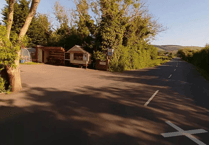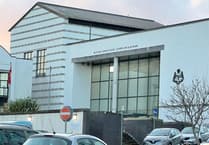Investors were duped into each ploughing more than a million pounds into a luxury homes project that ultimately failed.
Judgment has been handed down in a high court case following a trial which was heard in Douglas courthouse over six weeks last year.
There were more than 8,500 pages of documents in the trial bundle, six experts’ reports and over 350 pages of written submissions.
Grade 1-listed Cornwall Terrace on the edge of London’s Regent's Park was constructed between 1821 and 1823 to a design by Decimus Burton, and under the supervision of John Nash, who designed Buckingham Palace.
Developers, Oakmayne or the Oakmayne Group, were behind a scheme to convert the building to prime residential properties for sale to high-net-worth individuals.
No.1 Cornwall Terrace, once occupied by squatters in the 1970s, was to go on the market for £100m.
It was billed in the UK press at the time as the world’s most expensive terraced house.
Some £170m of financing was secured from the banks for the project - with a condition that a further £40m had to be sourced from private investors.
Several large investors expressed an interest but, one by one, they dropped out. However, claimants Matthew Wickers, Dennis Lavin and John Tinsley were persuaded to invest.
As the court judgment points out, the decision in July 2007 to develop Cornwall Terrace could not have been made at a worse time. A month later the global credit crunch hit and then things soon started to go wrong with the project.
Increased building costs and construction delays led to the project failing by 2013 at the latest, with losses of £43m. All the properties were sold but at prices that did not bring any return to the private investors.
The banks exited largely unscathed, but the claimants each lost their original £1m investment plus extra money they had injected into the venture.
Mr Wickers, Lavin and Tinsley maintained matters were concealed from them so that they did not appreciate the true picture regarding the failure of the project until 2014 or later.
They also queried the payment by directors of an inappropriately named ‘success fee’ of £3,763,735 to Oakmayne Properties (Regeneration) Ltd, which was dressed up as a fee for work done in the acquisition of Cornwall Terrace.
The island-based defendants, David Humbles, Michael Riddell and Guy Wiltcher were all directors of OPR, which is now in liquidation.
They insisted that the facts stated in the 2007 investment opportunity brochure were true and that it did not omit anything of importance.
But in his judgment, Deemster Alan Gough ruled that the brochure was a ‘fraudulent document’.
He said it mis-stated facts and deliberately omitted or disguised matters, not least the success fee.
Deemster Gough said the claimants were ‘duped’ into investing.
He said: ‘I find the brochure fraudulently misrepresented the investment opportunity such that the claimants were duped into investing into something they would otherwise avoid had they known all the facts.
‘I also find that the representations made by all the defendants that the facts stated in the brochure were true and that it did not omit anything of importance were knowingly false.
‘They knew that £3.7m was going to Oakmayne on completion and that there was no mention of it in the brochure and that the success fee label was a disguise for this distribution.’
Deemster Gough added: ‘None of the claimants would have invested in this project had the true position regarding the success fee been revealed to them.’
He said there were no profits available for distribution in July 2007 and the payment of the success fee just days before completion was a ‘contrived manoeuvre designed to extract money from the venture’.
The Deemster said the defendants said they had taken care to ensure the brochure did not omit anything that would be of relevance to investors when considering whether to invest - but this assurance rendered them personally liable to the claimants.




